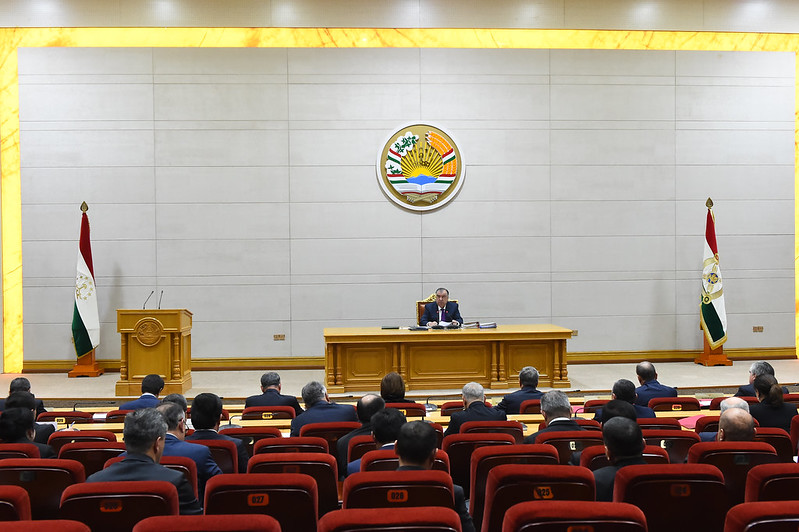The government session, presided over by President Emomali Rahmon, took place on October 31. The draft law on the national budget for 2023 and forecast of state budget indicators for 2024-2025 were one of major topics of the session, according to the Tajik president’s official website.
Speaking at the meeting, Emomali Rahmon noted that the national budget for 2022 would aim at implementing the country’s social and economic policy ensuring sustainable development of the national economy and development of real infrastructure sector, improving living standards and social protection of the population, and reducing the impact of negative external and internal factors.
Rahmon instructed the Ministry of Finance to increase the centralized main financing of the national budget in order to achieve the priority strategic goals of the country's development, implement sectoral and regional development programs as well as timely build and commission jubilee facilities.
“To do this, it is important to coordinate and implement a balanced macroeconomic, budgetary, fiscal and monetary policy,” the head of state said.
After Finance Minister Faiziddin Qahhorzoda and Economic Development and Trade Minister Zavqi Zavqizoda released their reports, the government members approved the draft budget for 2023 and forecast of state budget indicators for 2024-2025.
They also endorsed national external borrowing program designed for 2023-2025 and amendments proposed to the country’s laws on pawnshops, holidays, consumer cooperatives, and licensing separate types of activity as well as to the country’s air code.
The session participants also discussed issues related to renaming some settlements in the Lakhsh district (Rasht Valley in eastern Tajikistan), the program of development of development of electric transport in Tajikistan designed for 2023-2025, the national program of development of educational facilities in Khatlon province designed for 2022-2027, the results of the inventory of lands out of agricultural circulation in the territory of the Gorno Badakhshan Autonomous Region (GBAO), and quotas ferula juice and licorice root for the next year.




